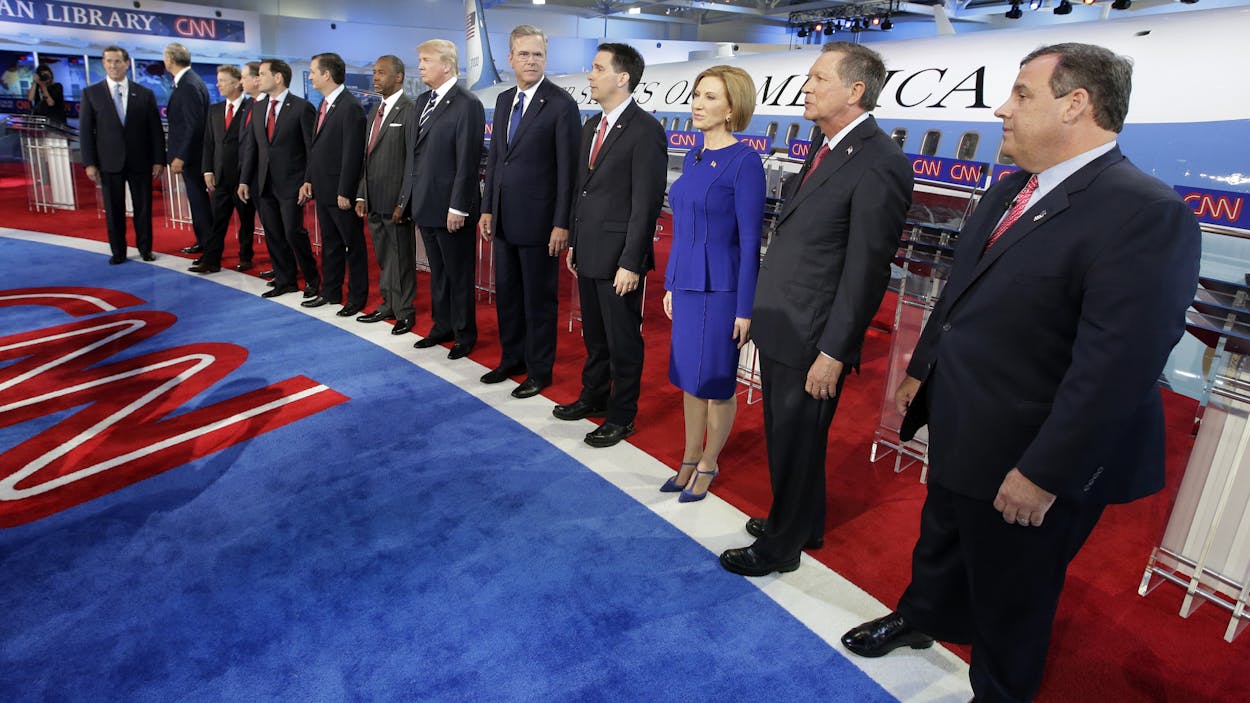Last night, 11 of the 16 remaining candidates for the Republican presidential nomination convened at the Reagan Library for the second debate of the 2016 cycle. Three seemingly interminable hours later, several clear winners had emerged.
Carly Fiorina, who earned a spot in prime time after an impressive showing at the “undercard” debate last time, distinguished herself once again with a sharp and focused performance. She also took the lead on challenging the frontrunner, Donald Trump, which was a cherished priority for most Republicans going into the debate; whether or not she holds up to the scrutiny she’ll receive going forward, she surely endeared herself to the party establishment by doing so.
I was impressed by Marco Rubio in the first debate, and once again, as I wrote then, he “seemed to have been airlifted in from an alternative reality where the Republican Party is having a robust debate about the future of the country, and can be optimistic about its chances of retaking the White House in 2016.”
And the third winner, last night, was the Republican Party itself. In addition to Rubio and Fiorina, there were creditable performances from Ted Cruz, Rand Paul, Jeb Bush, Chris Christie, and John Kasich. Viewers would have been left with the impression that the party does have viable candidates for president. And more importantly, Trump was overshadowed by the cross talk among the serious candidates, leaving him diminished and drained. As the Texas Observer‘s Chris Hooks put it earlier this week, Trump “is running, in essence, a tautological campaign”: his pitch is that you can tell he’s a winner, because he’s winning. Last night at least, that didn’t seem to be the case.







